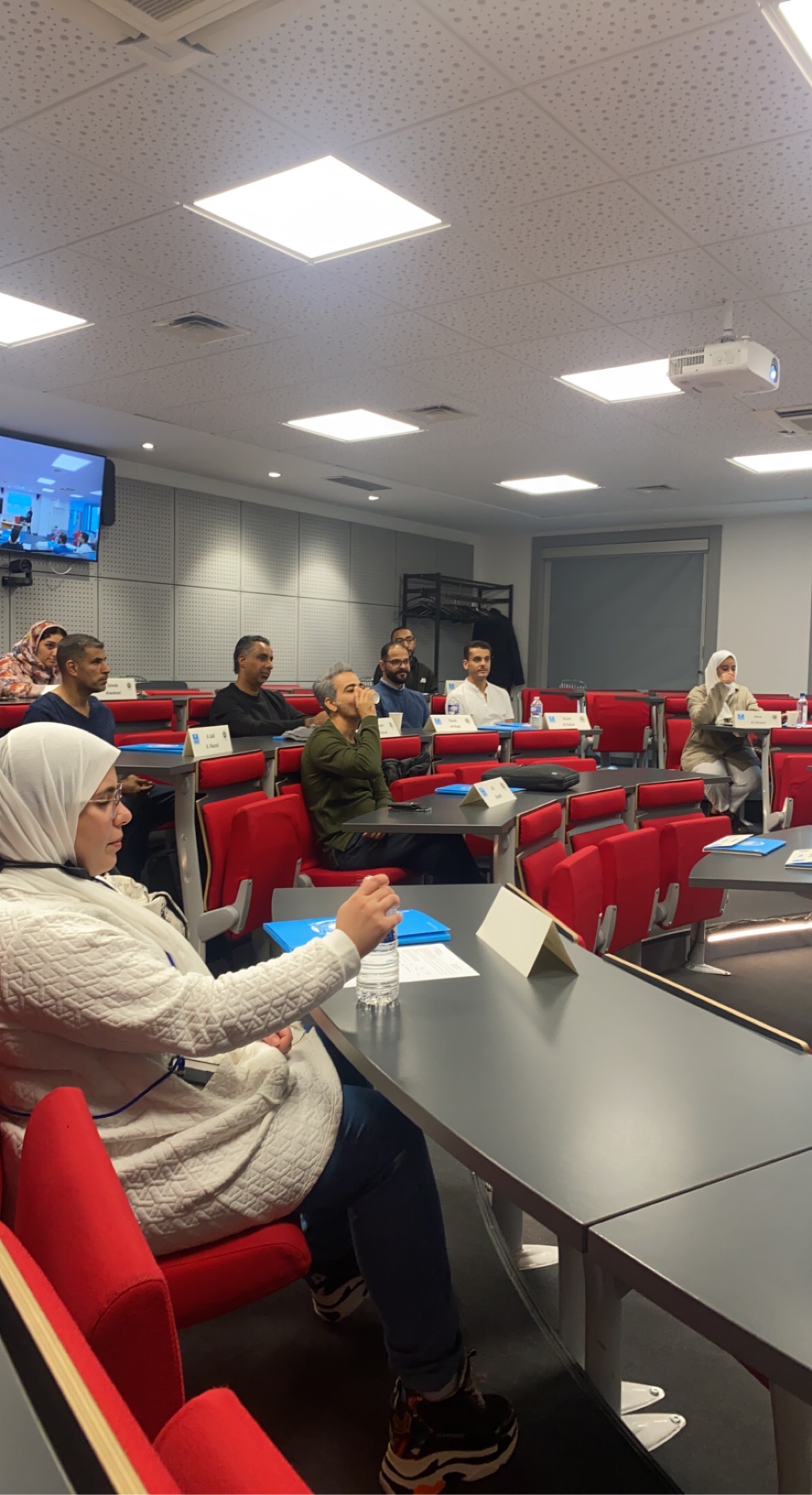Master In Next-Generation Computing

Master In Next-Generation Computing
The Master of Science in Next-Generation Computing is a master's program that includes three tracks: Artificial Intelligence and Formal Methods for Cybersecurity; Artificial Intelligence in Medicine and Healthcare; and Quantum Technology. This exciting new program will be taught by highly qualified and experienced professors from top-ranked universities.
Track 1: Artificial Intelligence and Formal Methods for Cybersecurity
The track of this program in Artificial Intelligence and Formal Methods for Cybersecurity is distinguished from other classic graduate programmes in the field of cybersecurity as it offers an innovative academic approach that combines the advanced techniques of artificial intelligence and formal methods. Thus, it progresses into the next level of cybersecurity which is required to face the increasing size and sophistication of cyberattacks. Indeed, artificial intelligence helps security operations analysts to be proactive against threats. Furthermore, formal methods have become well established as powerful techniques to demonstrate the absence of security vulnerability allowing for the construction of highly secured protocols and critical systems.
Vision
Pioneering next generation cybersecurity through a combination of artificial intelligence and formal methods.
Mission
To provide high-quality graduate education and research environment in artificial intelligence and formal methods applied to cybersecurity, train qualified experts, and produce innovative research to face future challenges in this critical field.
Program Objectives
The program’s main objective is to provide students with the following skills:
- Advanced design and implementation of safe, intelligent, AI-driven systems.
- Advanced usage of formal methods for the verification of safety and security critical systems.
- Conduct innovative applied research in cybersecurity to meet the GCC countries’ needs and provide solutions to regional private and public institutions.
Career Opportunities
Upon completion of the Master’s program, graduates can embrace expert careers as:
- Analyst and developer of advanced computer science applications, particularly in cybersecurity, AI and formal verification of safety and security critical systems in a variety of private and public industrial and services fields.
- Academic and research careers in GCC and other universities and research centers.
Vision
Leadership in providing outstanding graduate education in AI-based medicine and healthcare.
Mission
To educate and train qualified experts and develop a professional research environment in artificial intelligence applied to medicine and healthcare for the GCC medical community.
Program Objectives
The program’s main objective is to provide students with the following skills:
- The ability to apply artificial intelligence in the medical and healthcare fields to improve efficacy and efficiency.
- The capability of developing and implementing advanced and smart artificial intelligence solutions for clinical purpose.
- Create innovation for the development of smarter clinical decisions and diagnostic support using artificial intelligence tools.
Career opportunities
Upon completion of the Master’s program, graduates can embrace expert careers as:
- Analyst of advanced computerized and computer-generated medical data.
- Digital diagnostician in clinical medicine.
- Digital healthcare manager, artificial intelligence specialist.
- Academic and research careers in universities and research centers.
Track 3: Quantum Technologies
Vision
Paving the way for AGU to be an undisputed regional leader and global reference in graduate education and research in quantum technology and its main applications.
Mission
To provide high-level of scientific education and research environment in quantum technology and its main applications, and to prepare students to cope with the coming age of quantum technology.
Program Objectives
The program’s main objective is to provide students with the following skills:
- Gain a deep understanding of the specificities of quantum algorithms.
- Master the design and the architectures of quantum computers.
- Design, implement and maintain quantum information systems.
- Conduct innovative applied research in the field of quantum computing applied in particular to artificial intelligence and cybersecurity that have concrete impact on industries.
Career opportunities
Upon completion of the Master’s program, graduates can embrace expert careers as:
- Senior quantum computing developer/manager in private and public institutions in various industries and services including, but not restricted, to banking, insurance, and consultancy.
- Government IT strategic and policy advisor.
- General experts for emerging technology such as neuromorphic computing, high performance computing, stochastic computation, etc.
- Academic and research careers in universities and research centers.
Download Detailed Study Plan: Master In Next-Generation Computing (Quantum Technology)
